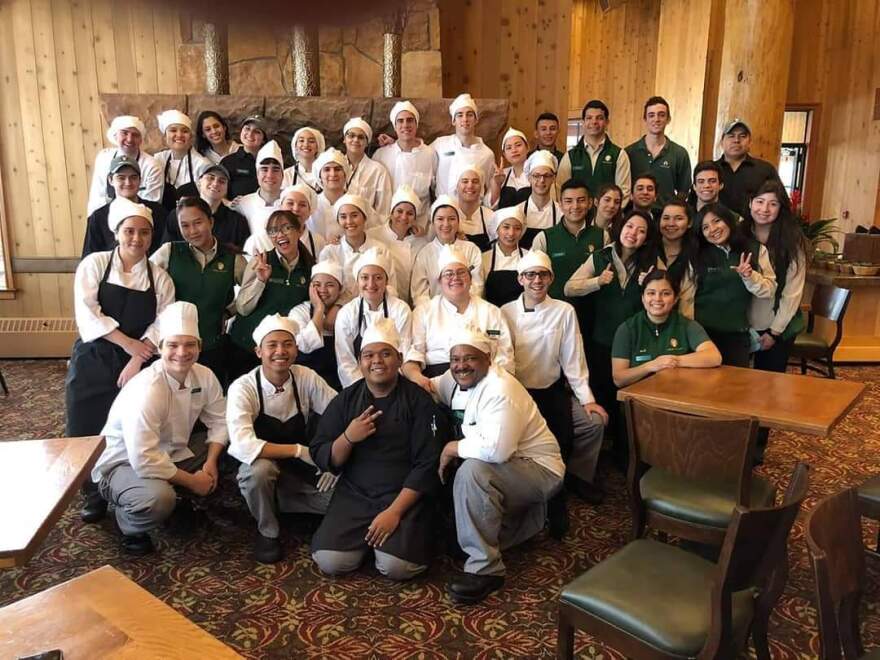Like hundreds coming to Park City from abroad, 24-year-old Meilyn Ortega from Costa Rica said she’s looking forward to a fun winter.
“Here in Costa Rica, there is no snowboarding, skiing,” she said. “I want to meet people, I want to have experiences, I want to see things that I can’t see in my country. I want to improve my English, too.”

Ortega will fly to Utah December 8, then begin working as a hostess, food runner and Starbucks barista. It’ll be her second Utah winter after working in town during the winter of 2020.
According to Ortega and other incoming seasonal workers, finding a job isn’t the challenge; it’s finding somewhere to live. While Ortega said she got lucky and found cheap housing, many still don’t have rentals locked down, including friends of hers.
Two weeks before he’s scheduled to arrive, José Pablo Valerio is still looking for a place to live with five friends. He’s 25 and also from Costa Rica, and he’ll work as a cook at Deer Valley. Four winters ago, he worked in the kitchens of the Empire Canyon Lodge and Tupelo restaurant.
He guessed he’s tried over 50 listings but still hasn’t nailed anything down. He said there are fewer places available, and more fake listings now than in 2018.
“The ones that were not scams,” he said, “they have, like, at least a year lease that was not so common back then. So, I think it's harder now to find a good house and place.”
He said he might be able to secure a place in Kimball Junction this week. Rent there would be over $1,000 per person. At the beginning of the search, his group set their budget at around $700 per person.
A woman who’s been called a helper to many J-1 workers over the years guessed there were still around 200 workers looking for shelter in November.
A few years ago, she started by helping one friend’s daughter find a place, then word spread of her helpfulness and she kept finding homes for people. She’s since created a network of people who help J-1s vet would-be-scammers. She said she’s helped over 100 of them this year, and she’s seen more fraudulent listings than ever.
She asked not to be named in this report.
Christian Center of Park City Executive Director Rob Harter agreed that the housing squeeze is tighter this year. He’s hosting three students from Costa Rica who will work at the St. Regis this winter. He said even back in September, they were struggling to find housing and said they were “desperate” when they contacted the nonprofit for help.
He was impressed when St. Regis employees met with him in person to make sure he would deliver for their incoming J-1s.
“Because there's been so much fraud, they wanted to make sure,” Harter said, “so they literally came to my house, made sure I was there and looked at the space to make sure it wasn't some fraudulent claim of a place to stay, and I've never seen that level of detail.”
Harter said the challenge of finding housing is pushing people into Heber City and Salt Lake City.
Paula Valverde is another J-1 worker returning to Park City to work, hailing from Peru.
To lock in her place in Prospector, she and 11 roommates offered the landlord $12,000 a month, when the asking price was only $10,000. That means she’ll spend half her income each month on rent.
She said she loves the weather and people here, but the housing shortage is just another on a list of challenges with flights, visas and leaving home for months on end.
If J-1 workers are expected to keep coming back each winter, she suggested the businesses that rely on them start doing more.
“I think that the employers, they have to make some things about the housing of the J-1s because it's a lot of work for us to make the papers and also look for housing,” Valverde said. “So yeah, they have to help us.”
J-1 visas last four months. Those months vary slightly depending on the holder’s nationality, but most of the incoming workers will be eligible to work in the U.S. from early December to late March.





